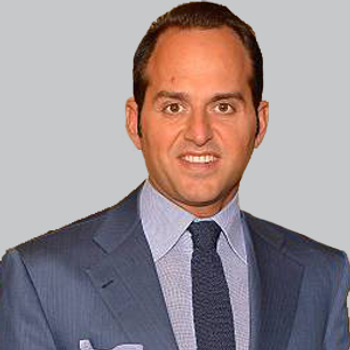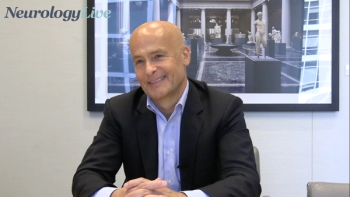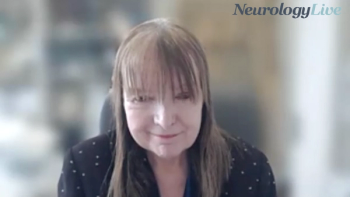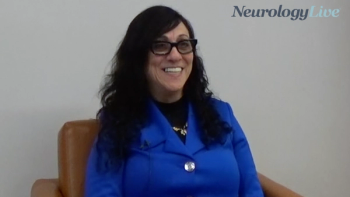
The application was supported by positive data of KYV-101 in patients with stiff-person syndrome treated in Germany under a named-patient treatment option.

The application was supported by positive data of KYV-101 in patients with stiff-person syndrome treated in Germany under a named-patient treatment option.

Take 5 minutes to catch up on NeurologyLive®'s highlights from the week ending July 26, 2024.

Across a 12-week study, atogepant-treated patients, with and without acute medication overuse, had greater reductions in mean monthly migraine days, monthly headache days, and acute medication use days.

Michael Soileau, MD, FAAN, talked about a panel of specialists who discussed the evolution and multidisciplinary treatment of Parkinson disease, emphasizing patient-centered care and advanced therapeutic options.

Mind Moments®, a podcast from NeurologyLive®, brings you an exclusive interview with Douglas Wajda, PhD. [LISTEN TIME: 13 minutes]

Over a 48-week period, patients treated with low molecular weight dextran sulfate compound had minimal changes in ALS Functional Rating Scale and ALS Assessment Questionnaire.

The expanded indication, supported by a phase 2 open-label trial, includes children of all ages with CLN2 disease, regardless of whether they are symptomatic or asymptomatic.

Tiziana Life Sciences’ intranasal foralumab has shown potential in treating nonactive secondary progressive multiple sclerosis through innovative immune modulation.

Anvi Gadani, MD, assistant clinical professor of medicine at Medstar Georgetown University Hospital, discussed surgical and device-guided therapies for managing advanced Parkinson disease and essential tremor.

With the approved IND, it expands research efforts of equecabtagene autoleucel from other autoimmune conditions like myasthenia gravis and NMOSD.

NeurologyLive joins the CMSC in mourning the loss of founder and CEO,June Halper, MSN, APC-C, MSCN, FAAN.

In a study with 147 participants, SAGE-324 did not show a statistically significant dose-response relationship or improvement compared to placebo in patients with essential tremor.

Investigators found that in melanomas in particular, interleukin-6 blockade seems to be effective in the management of immune-related adverse events from immune checkpoint inhibitors.

Pending positive results from an early-stage trial, a mid-stage study evaluating MyoPAXon’s effect on other targeted muscles and muscle function will be initiated.

Treated patients demonstrated improvements on the Bayley-4 in cognition, communication, and motor function that exceeded those seen in natural history studies of Angelman syndrome.

The president and CEO at Alzheon shared recent insights into neurodegenerative diseases that suggest a single toxic trigger may be responsible for conditions like Alzheimer disease, leading to potential early intervention and treatment strategies. [WATCH TIME: 10 minutes]

The director of movement disorders at the Banner Sun Health Research Institute talked about recent, promising advancements for diagnosing atypical Parkinsonian disorders and the questions that remain.

Steve Hoffmann, MS, and Alessio Travaglia, PhD, provide commentary on a recently launched public-private partnership aimed at identifying biomarkers to better differentiate Parkinson disease from other related neurodegenerative disorders.

Antonella Favit-Van Pelt, MD, PhD, chief medical officer at Helius Medical Technologies, gave perspective on the clinical advantages of the company’s non-implantable device to treat gait in multiple sclerosis.

The professor of neurology at Stony Brook Medicine talked about the promising potential in ongoing studies assessing BTK inhibitors as treatment for primary progressive multiple sclerosis. [WATCH TIME: 3 minutes]

In the event that a patient inadvertently took a 0.25 mg dose rather than the intended 0.125 mg dose, they are advised to consult a physician.

The assistant professor at Hunter College talked about the approach of localization to prevent misdiagnoses of multiple sclerosis and ensure patients receive appropriate treatment. [WATCH TIME: 3 minutes]

LETM and AQP4-IgG seropositivity were strong predictors of spinal movement disorders, while MOG-IgG and African American race are protective factors.

The study highlights tocilizumab's potential benefits and safety, even during SARS-CoV-2 infection.

Across all studies, including 2 of the largest recorded for CIDP, patients unanimously demonstrated a preference for SCIG over IVIG.

Patricia Clark, CNP, a nurse practitioner at the Cleveland Clinic, talked about a specialized program for hospitalized patients with Parkinson disease that aligns hospital protocols with home medication regimens to improve care.

The president and CEO at Alzheon talked about a novel Alzheimer disease drug that shows promising early results in reducing key biomarkers and stabilizing cognitive function in a challenging patient population. [WATCH TIME: 10 minutes]

Here's some of what is coming soon to NeurologyLive® this week.

Amifampridine enhances neuromuscular transmission and relieves muscle weakness, showing promise for Lambert-Eaton myasthenic syndrome and other neuromuscular junction disorders.

Gavin Giovannoni, MBBCh, PhD, FCP, FRCP, FRCPath, explored 3 perspectives on self-managing multiple sclerosis (MS): a general consensus, insights from MS-Selfie, and a future technology-based model.